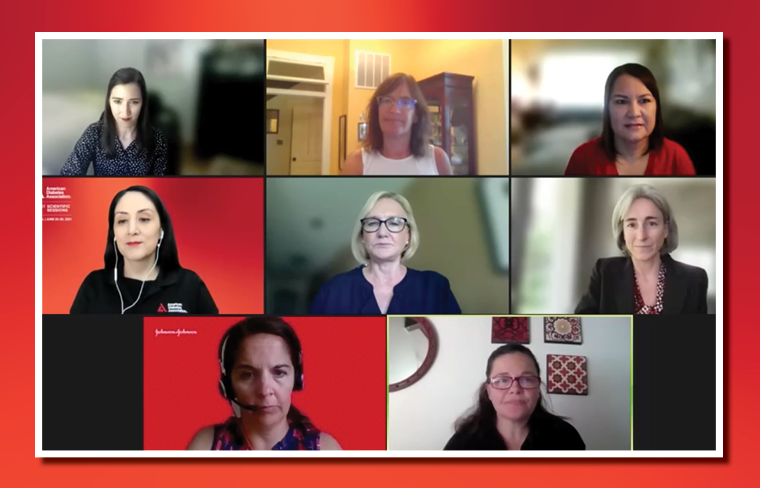-
Diabetic foot surgery impacts psychological health of patients, risk for amputation
Four experts—Tammer Elmarsafi, DPM, MBBCh, Foluso Fakorede, MD, Garneisha Torrence, DPM, MHMS, and Michael D. VanPelt, DPM—discussed surgical considerations in diabetes foot management at the Scientific Sessions.
-
What drives the metabolic benefits of gastric bypass surgery? Experts weigh in
Samuel Klein, MD, and Blandine Laferrère, MD, PhD, presented different viewpoints on whether the metabolic benefits of Roux-en-Y gastric bypass surgery are due to weight loss alone.
-
Expert panel examines diet’s role in beta cell function
Maria S. Remedi, PhD, Richard O’Brien, PhD, Aleksey Matveyenko, PhD, and Jennifer Bruin, PhD, explained several ways that diet and environmental factors can affect beta cell function, metabolic disease, and diabetes during the Scientific Sessions.
-
Researchers are exploring role of beta cell senescence in diabetes onset, progression
A panel of investigators including Billy Tsai, PhD, Peter Thompson, MSc, PhD, Emily May Walker, PhD, and Ernesto Nakayasu, PhD, BS, discussed how emerging and ongoing research into the mechanisms of beta cell senescence is providing new insight into the roles of beta cell aging and stress in the development and progression of diabetes.
-
CGM provides early insight into pregnancy outcomes
Eleanor M. Scott, BM, BS, MD, FRCP, was one of five experts who addressed the utility of continuous glucose monitoring during pregnancy. A functional data analysis of two recent studies highlights the importance of tight glucose targets before the end of the first trimester for normal fetal growth, Dr. Scott said.
-
Experts discuss association between insulin and cancer
Four researchers—Emily J. Gallagher, MD, PhD, MRCPI, M. Celeste Simon, PhD, Lydia Finley, PhD, and Marcus Goncalves, MD, MSE, PhD—looked at the connections between insulin and cancer during the Scientific Sessions.
-
Immune intervention for type 1 diabetes could be headed to clinical practice
“It will be primary prevention that can be applied to a large number of the population that will really make an impact to the incident numbers of type 1 diabetes,” said Ezio Bonifacio, PhD.
-
MoTrPAC consortium seeks to chart ‘molecular map’ of physical activity benefits
Wendy M. Kohrt, PhD, Karyn A. Esser, PhD, and K. Sreekumaran Nair, MD, principal investigators from the Molecular Transducers of Physical Activity Consortium, discussed how early data from animal studies is setting the stage for human studies.
-
WIN ADA panel discusses repercussions of COVID-19 on women working in diabetes field
The pandemic exacerbated gender inequities among health care providers. In the U.S., 73% of health care providers who tested positive for COVID-19 were women. The ADA’s network for female clinicians, scientists, educators, and other health professionals discussed the impact of this and strategies to close leadership gaps.
-
Atypical diabetes presents unique diagnostic and treatment challenges for clinicians
Experts in four rare forms of diabetes discussed strategies for diagnosing and treating patients with these atypical conditions during the Scientific Sessions. The session featured Janet B. McGill, MD, Marina Basina, MD, Armen Yerevanian, MD, and Mark S. Anderson, MD, PhD.









